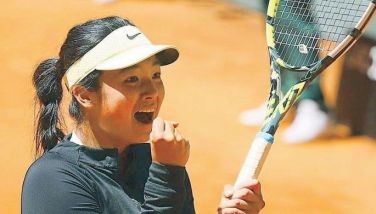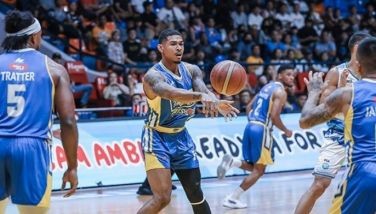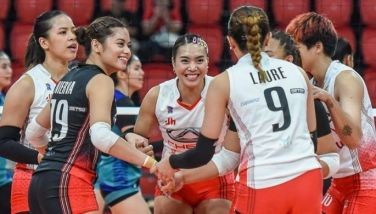Poaching
Poach: /p?CH/ – take or acquire in an unfair or clandestine way
There is no doubt amateur basketball players have got it so good. We’ve all heard the stories of high school players in the provinces being offered mobile phones, sneakers, food allowances, cars, cash, employment for their parents, and even housing. Oh, and lest we forget, a free education, too. They then move to Metro Manila, become big men on campus, get television exposure, and assume that their lives are permanently changed for the better.
The brouhaha swirling about alleged attempted poaching by a retired PBA Most Valuable Player (among others) in the UAAP merely highlights how loosely regulated college basketball – and college sport in general – is. The ridiculous supposed menu offered to Rhenz Abando to leave UST is not surprising, and is more common than you would think. It has been the norm in Philippine basketball for over half a century. During the 1960’s and 1970’s, several collegiate players were mercenaries, winning championships for one school before bolting for another. In the first year of the PBA (before it instituted a draft), the teams who spent the most won the most. Crispa, Toyota and even Great Taste Coffee collected the best players and hoarded championships because that was still within the rules.
In the Philippines, collegiate leagues have adopted rules to deter players from flip-flopping between schools. One eligibility rule requires collegiate players to serve a residency period (two years if they are already in college and are moving to a rival school in the same league). The question now is how much of a deterrent that restriction really is. Remember that players from most schools (particularly in the provinces) don’t go through prep or Grade 7, and thus enter college relatively young. They are eligible to play for five scholastic seasons, or until they hit the age of 25. Therefore, they have time to spare.
While serving their residency, they can work out, train with a commercial team (even a PBA team), and play in an amateur league. Technically, they may be allowed to join a PBA D-League or MPBL squad, which are amateur leagues on paper. They can practice with their school team and learn the system they will be playing under. They will emerge from the two-year prohibition stronger, better and more mature. In other words, the rule would benefit the destination school.
In the US, college coaches are not even allowed to approach high school athletes until they are eligible. And when shoe companies do big events like camps and all-star games, the players are required to return every single item given to them, from jerseys to shoes and socks and so on, or purchase them at a discount. They are not allowed to receive compensation of any kind outside of their athletic scholarships. Even LeBron James was briefly suspended (and almost banned) from high school basketball for receiving sneakers. Poaching is seriously frowned upon.
What needs to be addressed is the principle behind it. In many sports, Metro Manila schools gain advantage by poaching players from provincial schools at the Palarong Pambansa. The residency rules in the UAAP and NCAA have forced some universities to pirate players earlier, so that they can instead finish high school in the destination school and skirt the eligibility requirements. That practice has also hampered the athletics programs of favorite victim schools in the south, in particular. And the situation is unlikely to change.
The majority of aspiring basketball players choose to play in Metro Manila because it is where television exposure is, and where the PBA scouts and coaches are. Given a choice, they would prefer the UAAP because of the higher television ratings and more glamorous image. And they will try to get as many perks as they can while negotiating the necessary evil of college hoops. If they could, they would make like Moses Malone, Kevin Garnett, Tracy McGrady and Kobe Bryant, and forego college basketball altogether.
A player could always argue that he chooses a particular school because it has the course he wants to take. But how many UAAP and NCAA players, for example, become doctors, engineers or lawyers? Most of them are after the path of least resistance to a shot at being drafted for the PBA. The rules – and therefore, loyalty- are sometimes obstacles to their goals.
So the poaching will continue, albeit more discreetly. Players will cooperate in the conspiracy of silence that benefits them. And the very schools tasked with regulating player transfers are the ones who benefit from bending the rules. There should be an external regulatory body to ensure fairness and parity within the rules, written or unwritten.
- Latest
- Trending































